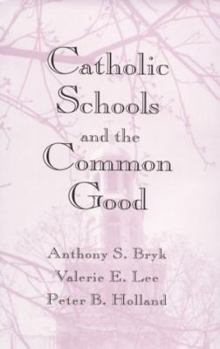Catholic Schools and the Common Good
Select Format
Select Condition 
Book Overview
The authors examine a broad range of Catholic high schools to determine whether or not students are better educated in these schools than they are in public schools. They find that the Catholic schools do have an independent effect on achievement, especially in reducing disparities between disadvantaged and privileged students. The Catholic school of today, they show, is informed by a vision, similar to that of John Dewey, of the school as a community committed to democratic education and the common good of all students.
Format:Hardcover
Language:English
ISBN:0674103106
ISBN13:9780674103108
Release Date:January 1993
Publisher:Harvard University Press
Length:416 Pages
Weight:1.60 lbs.
Dimensions:1.3" x 6.5" x 9.5"
Customer Reviews
1 rating
Explaining the success of Catholic schools
Published by Thriftbooks.com User , 24 years ago
Reading this book convinced me to go to work in Catholic education. Before you even get to the long statistical analysis of student performance in Catholic schools, the book includes a nice history of Catholic schools in the United States, which, as a Catholic school parent but never a student, I found fascinating and, in a way, evangelizing for me.The statistical analysis gives proof to the claims of solid performance of Catholic school students, and it gives lie to criticisms that Catholic schools shortchange minority and disadvantaged students--those students tend to perform better in Catholic schools than in other schools, the study finds.Among the reasons for the success of Catholic schools, the book suggests the following: expectations of student success, individual attention, and a supportive environment and community that is created by students, staff, and parents. For supporters or critics of Catholic schools, this is an important book.





